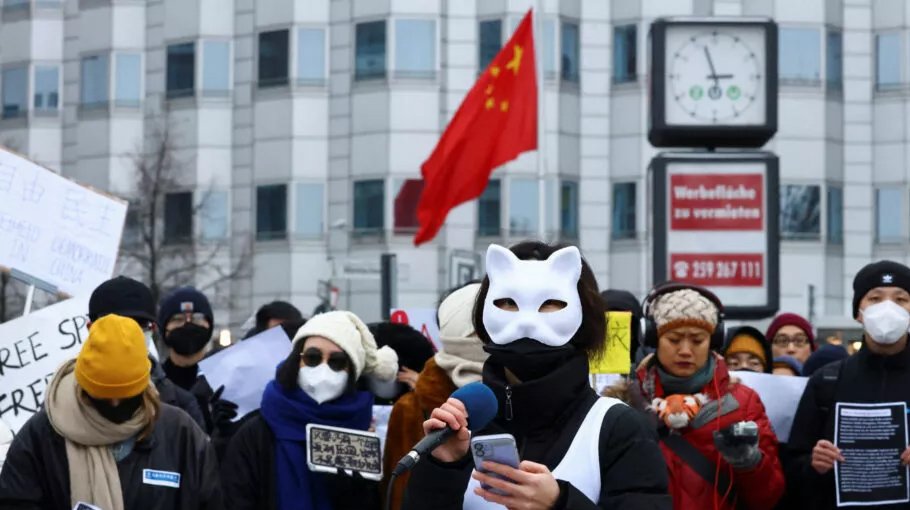New generation brings new challenges for China’s Diaspora engagement

Sheng Ding
The estimated Chinese diaspora population in 2020 was 49.33 million, of which 73 per cent belong to the locally born new — second, third or later — generation. Amid rising geopolitical tensions, Beijing faces multiple challenges in engaging this new generation Chinese diaspora.
Not all overseas Chinese identify with the term ‘Chinese diaspora’. Many overseas Tibetans and Uyghurs have rejected China’s diaspora engagement efforts. Some who define diasporic identity through political values rather than culture or ethnicity argue that diasporas associated with Taiwan and Hong Kong are distinct from those linked to mainland China. Despite these complexities, the term ‘Chinese diaspora’ is used here to encompass people of Chinese ancestry living outside mainland China, Taiwan, Hong Kong and Macau.
In contrast to the stereotypical image of unskilled ‘coolies’ that characterised early Chinese immigrants, the new generation of the Chinese diaspora is generally better educated and more highly skilled. Census data from Australia and the United States show that they are generally younger than the populations of their host countries and enjoy significantly higher educational and economic statuses than their first-generation counterparts.
These demographic trends significantly influence the political and cultural identities of the new generation Chinese diaspora, as well as their responses to Beijing’s diaspora engagement efforts. Unlike first-generation immigrants who often maintained strong political and cultural ties to China, locally born members of the new generation are more closely aligned with their countries of residence. Those raised in democratic societies tend to participate more actively in politics, express their views more freely and contribute to their diasporic communities.
Unbound by the censorship and surveillance that dominate China’s domestic internet and social media networks, the new generation Chinese diaspora has become vocal critics of the Chinese communist government. Many have been at the forefront of protests — both online and offline — against Beijing’s repressive human rights policies in Hong Kong and Xinjiang. During the White Paper protests against China’s zero-COVID policy in November 2022, images of demonstrators holding blank sheets of paper quickly went viral among the members of the new generation. These internationally publicised events offered young diasporans a rare opportunity to observe and respond to Beijing’s handling of dissent.
In response to the growing influence of the new generation Chinese diaspora, Beijing has adapted its engagement strategies by launching a more integrated and customised campaign. It has leveraged social media platforms like TikTok and WeChat to extend its digital reach and extraterritorial influence over this demographic.
Beijing has also improved its exit-entry regulations and implemented selective immigration policies to attract global talent, particularly targeting new generation Chinese diaspora members who possess strong economic and technological skills and wide-ranging marketing networks, political connections and business contacts. In parallel, the government has made concerted efforts to promote the learning of Chinese culture and language among overseas Chinese youth.
But Beijing’s diaspora engagement efforts are increasingly viewed with suspicion as geopolitical and geoeconomic competition with the West intensifies. Critics argue that these efforts go beyond soliciting support for economic growth or national unification, aiming instead to expand China’s political and economic influence in host countries. Rising anti-China rhetoric and public sentiment, suspended education and cultural exchange programs, investigations targeting scientists of Chinese descent and threats to revoke Chinese student visas, reflect backlash against Beijing’s diaspora engagement in Western countries, particularly the United States.
Since the Communist Party has consistently orchestrated China’s diaspora engagement, the Party’s perceived image is crucial to the effectiveness of these efforts.
In the global information age, countries that build the strongest national images are those with sufficient political credibility to sustain long-lasting appeal through soft power. This political credibility is typically characterised by efficient governance, respect for democracy and human rights and responsible international behaviour.
Unfortunately, the Chinese communist government lacks many of these qualities, which undermines its appeal among the new generation Chinese diaspora. It is well known that Chinese apps such as WeChat and DeepSeek are subject to significant censorship and government control. Persistent concerns over Beijing’s omnipotent surveillance programs and access to private data have deterred many individuals — both within and outside the Chinese diaspora — from using Chinese tech products or travelling to China.
Given China’s growing rivalry with key host countries of the Chinese diaspora, along with its lack of transparent governance, respect for democracy and commitment to human rights, Beijing’s efforts to engage this demographic will continue to face significant challenges. Many members of the new generation identify more closely with their countries of residence and are actively involved in transnational activism focused on social justice and human rights.
This makes them particularly sensitive to China’s shortcomings in these areas, prompting scepticism and resistance towards Beijing’s attempts to build influence among them.
Sheng Ding is Professor of Political Science at Commonwealth University of Pennsylvania.
Source: East Asia Forum



